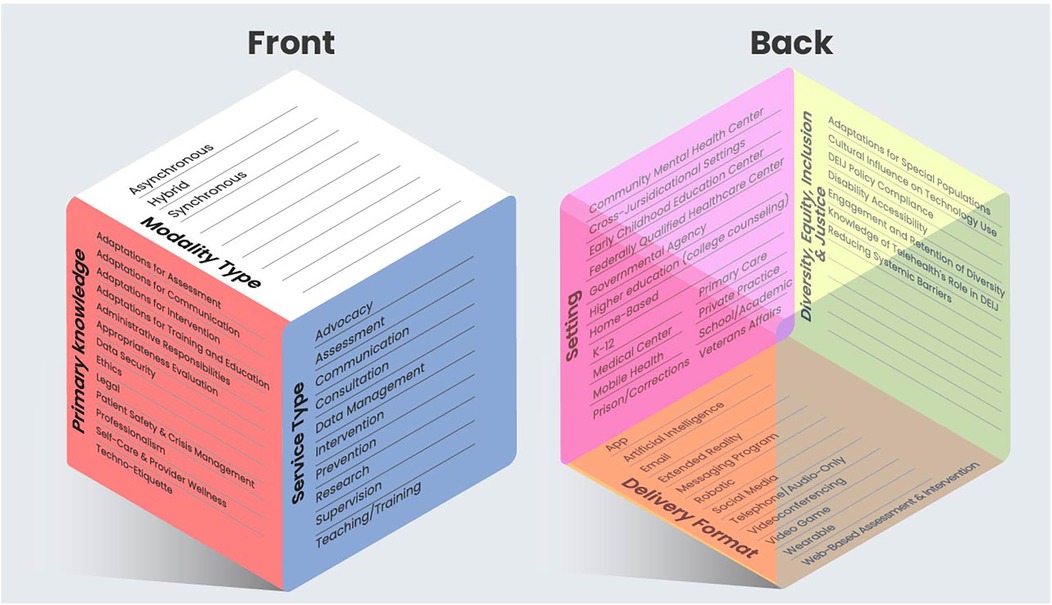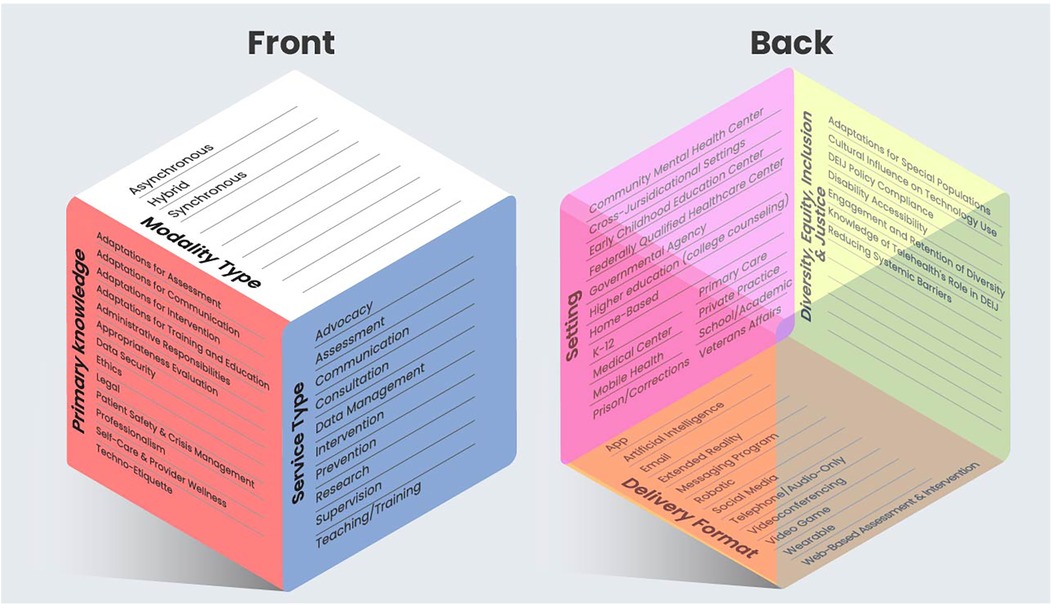Introduction
Technology-enhanced practices have become increasingly integrated into healthcare, necessitating practitioners to acquire skills in numerous competencies. However, literature guiding their use remains inconsistent and fragmented. This scoping review aimed to identify technology-enhanced practice competencies for healthcare practitioners across peer-reviewed literature.
Methods
A comprehensive review was conducted using PubMed, Scopus, Web of Science, PsycInfo, Global Index Medicus, and Journal of Technology in Behavioral Science between November 2022 and March 2023. The review followed the PRISMA-ScR reporting standards and published scoping review methodologies.
Results
The initial search yielded 10,583,799 records, with 109 manuscripts meeting inclusion criteria. Seventeen primary competencies were identified, with ethics (77.1%), legality (68.8%), and data security (65.1%) being the top three. The majority of included manuscripts focused on telecommunication technologies, particularly post-COVID-19.
Discussion
The review highlighted the need for greater practitioner resources to ensure acquisition of necessary competencies for ethical, legal, evidence-informed, and safe practices. To synthesize findings, the Intersectional Technology Education and Competency in Healthcare (iTECH) Model was developed, comprising six broad domains: primary knowledge, service type, modality type, delivery format, setting, and diversity, equity, inclusion, and justice (DEIJ).
iTECH Model
The iTECH Model is designed to guide practitioner education and training, fostering optimal use of technologies in healthcare practices. It can be adapted for emerging technologies, settings, and uses. For example, a hospital-based child psychiatrist using an AI chatbot for patient mood tracking can apply the model by clarifying the AI technology as their delivery format, with assessment as the service type, asynchronous as the modality type, and both hospital and home-based as the setting type.
Limitations and Future Directions
Study findings are limited by database selection, language criteria, and Boolean operators. Future work should include additional databases, post-review period literature, and non-peer-reviewed sources. The iTECH Model should be compared to existing models and implemented in healthcare practitioner training curricula to evaluate its effectiveness.
Conclusion
The scoping review and iTECH Model development address the need for greater practitioner resources and competency development in technology-enhanced healthcare practices. Future studies should explore best methods for integrating the iTECH Model into graduate coursework, real-world experiences, and continuing education.





